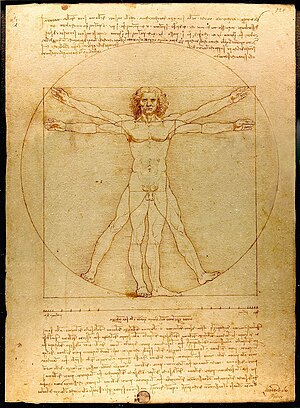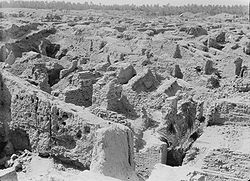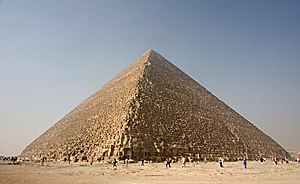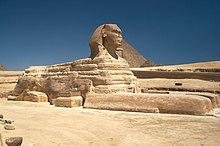http://www.outsideinthemovie.com/
I can't seem to embedd this video onto my blog; so, your going to have to click the link to see this video of saturn.

Tuesday, May 31, 2011
Monday, May 30, 2011
quote for the day/cicero anti-mathematics quote
"Geometry was in high esteem with them, therefore, none were more honourable than
mathematicians; but we have confined this art to bare measuring and calculating." - Cicero
mathematicians; but we have confined this art to bare measuring and calculating." - Cicero
Sunday, May 29, 2011
Saturday, May 28, 2011
Friday, May 27, 2011
thought for the day/the logan's run future
Thursday, May 26, 2011
astro picture for the day
quote for the day/non-mathematical quote
astro picture for the day
Our currently(May 26, 2011) most detailed view of the galactic distribution within about three hundred million light years.
Wednesday, May 25, 2011
quote for the day
"The main conclusion arrived at in this work, namely, that man is descended from some lowly-organized form, will, I regret to think, be highly distasteful to many persons. But thre can hardly be doubt that we are descended from barbarians. The astonishment which I felt on first seeing a party of Fuegians on a wild and broken shore will never be forgotten by me, for the reflection at once rushed into my mind-such were our ancestors. These men were absolutely naked and bedaubed with paint, their long hair was tangled, their mouths frothed with excitement, and their expression was wild, startled, and distrustful. They possessed hardly any arts, and, like wild animals, lived on what they could catch; they had no government, and were merciless to everyone not of their own small tribe. He who has seen a savage in his native land will not feel much shame, if forced to acknowledge that the blood of some more humble creature flows in his veins. For my own part, I wold as soon be descended from that heroic little monkey, who braved his dreaded enemy in order to save the life of his keeper, or from that baboon who, descended from the mountains, carried away in triumph his young comrade from a crowd of astonished dogs-as from a savage who delights to torture his enemies, offers up bloody sacrifices, practices infanticide without remorse, treats his wives like slaves, knows no decency, and is haunted by the grossest superstitions.
-Man may be excused for feeling some pride at having risen, though not through his own exertions, to the very summit of the organic scale; and the fact of his having thus risen, instead of having been aboriginally placed there, may give him hopes for a still higher destiny in the distant future. But we are not here concerned with hopes or fears, only with the truth as far as our reason allows us to discovery it. I have given the evidence to the best of my ability; and we must acknowledge, as it seems to me, that man with all his noble qualities, with sympathy which feels for the most debased, with benevolence which extends not only to other men but to the humblest living creature, with his godlike intellect which has penetrated into the movements and constitution of the solar system-with all these exalted powers-Man still bears in his bodily frame the indelible stamp of his lowly origin." - Charles Darwin
-Man may be excused for feeling some pride at having risen, though not through his own exertions, to the very summit of the organic scale; and the fact of his having thus risen, instead of having been aboriginally placed there, may give him hopes for a still higher destiny in the distant future. But we are not here concerned with hopes or fears, only with the truth as far as our reason allows us to discovery it. I have given the evidence to the best of my ability; and we must acknowledge, as it seems to me, that man with all his noble qualities, with sympathy which feels for the most debased, with benevolence which extends not only to other men but to the humblest living creature, with his godlike intellect which has penetrated into the movements and constitution of the solar system-with all these exalted powers-Man still bears in his bodily frame the indelible stamp of his lowly origin." - Charles Darwin
Tuesday, May 24, 2011
thought for the day/the U.S. Capital building and non-Euclidean geometries!
It appears that I never finished this post! I mean we're talking about three years later I come back to pretty much rewright this entire thing, and outside of a picture of the Capital building, the post is blanck!
I appear to have meant to talk about the U.S. Capital building and non-Euclidean geometry. What could I possibly have been thinking back then? I know where I was going back then. The U.S government with it's Constitution is generally held as an example of axiomatic reasoning. Historians(mostly rationalists mathematicians like Morris Kline in his "Mathematics and Western Culture") have noted various intellectuals of the period that had an influence on the founding fathers of the U.S.A. John Locke is probably the most famous one. Thomas Jefferson read Volney's "Ruins of Empires." Volney wrote about religions destroying empires in this book. He also has a chapter in it about the sungod origins of Jesus Christ. He appears to be the first with this insight; he got the idea from comparison of astrology and the Gospels and various old-testament passages. So, America was founded on the idea of mathematical axioms(the constitution and the supreme court that upholds the constitution).
The only problem for the founding fathers, which no-one notes, is that around the same time the founding fathers were trying to make a more rational nation across the pond, mathematics was going through a bit of a revolution. They were finding they could change up the axioms and come up with alternative but logically consistent geometries(they quickly moved to doing the same with algebra, and then in the early 1900s, logic itself!).
One could explore the philosophical implications of this till the wells run dry. Me? I'm going to talk about something else.
Jacob Bronowski likes to point out the similarities between mathematics and the arts. Mostly, he just points out poetry and mathematics; that poetry and mathematics are both analogies. Poetry is metaphors and similies, and mathematics is abstraction, and abstraction is analogy. He knows that mythology is poetry, but he doesn't really get into it. I went ahead and checked it out; the summary is my Gospel of Truth, first post of this blog. But, the arts and mathematics has their differences as well.
Art tends to be whatever they want. Mathematics tends to require 'truth' defined by a deductive process. Science requires at least experimental/observation confirmation. That's fine for the most part. Art is nice for decorations. It's generally harmless. But, there seems to be a form of art, of mythology that says, I am the truth . . . and refusal to reason about that truth or whether it is true or not. James Frazer in his "The Golden Bough" shows logical and historical evidence to suggest that religion can be defined as politicized mythology. Mythology for the purpose of appeasing and controlling the masses(E.T. Bell, in his "Magic of Numers" notes that Democracy can be defined as 'mob rule.'); see the last quote of my Gospel of Truth from Emperor Constantine's right hand man, Eusebius.
Now, I'm finding an analogy between gangs, cults, and religions. Religions are just bigger cults. Cults are just gangs with a mythology they make up to make themselves divine.
As I've mentiond in my disproof of the existence of god, Gödel's theorem proves that a finite set of consistent axioms cannot prove an infinity of truths. If the set of axioms is inconsistent though, then they can prove anything. Mathematics chooses the finite set of consistent axioms. The supernatural believers choose the finite inconsistent set of axioms to prove everything . . . without explaining anything. They also say, we have faith that 'god did it' to everything. If it's bad to them, they just say, "God works in mysterious ways." They will go to violence to maintain the power they have because they are part of this religious order. In studying 'gangs' we have window on numerous 'religions' coming and going and fanatic followers who will not listen to reason, or solve problems by reason. They solve their problems by violence. This is an edit after making the initial post. What follows is some characteristics I found after watching the first ten or so 'ganglands.'
Religion is about instilling fear to control; Santa Clause won't bring you presents unless your a good kid. Jesus Christ won't save you unless you believe in him(which oh by the way says pay your taxes to the Roman empire).
Gangsters settle questions by fear and violence. Human beings who haven't forgotten the childhood curiosity they were born with, reason. The difference between humans and the other animals is reason.
Gangs always have symbols to indicate who's part of the club. Usually, there's some kind of violent initiation. Around 9:00 minutes of season 1: episode 13( https://www.youtube.com/watch?v=yrgXBs0iv7Y ) of the gangland account of the M.S.-13 gang shows MS-13's violent initiation 'ritual'. Gangland has like six or seven seasons/years of gang documentaries as well. Is religion violent rituals? Maybe not today. But, people go to these religions for protections against the fearmongering in the outside world. It's generally, socially regarded that you shouldn't kill someone in a church. As I indicate in my 'Gospel of Truth/part 2', the various Christian factions of the time of the fall of the Roman empire were at each others throats, killing each other. In fact, the history of the first half the dark ages reads like one faction, whether Antioch or Alexandrian, were fighting for the rights to the religion. One could say that this gangster violence has only lessoned in recent history because of the influence of the founding father's 'great experiment.'
People end up in their gangs, and fear leaving it because they won't be part of the crown anymore. They'll be socially chastised by their former gang members.
Maintaining of reputation. Japanese before, during and after World War 2 often expressed their fear of maintaining their reputation and 'honor'. 'Honor' is a gangster notion. You'll hear it over and over again. Political factions are often defending their 'honor.'
Kings/queens, and Chain of commands are central features of all gangs.
When a given person is trying to survive, it's better to join up with someone. Joining these gangs also serve the purpose of protection from other gangs. They form their chains of command. In the end, they don't solve their problems by reason, but by violent means. This happens over and over again; I'm talking about tribes forming nations from hundreds of thousands of years ago to the beginning of agriculture all the way up to industrialism and America. Eventually someone says, o.k. lets just have a compromise and make democracy. We'll vote. This all sounds good, but the fact is that democracy is proof of fear mongering and refusal to listen/reason.
Let me give an example of vagueness gaming. "The rice is really good". My father seems to have this tendency to try to get you to do something like eat his food. This is certainly a harmless example. But, the way he does it proves vagueness gaming. He tells you the rice is good even though the main part of the meal is chili, he's trying to get you to eat the food from the day before. Damn, I can't seem to find my other examples of these evasive vague talk. I could have sworn I wrote down a few more examples. Basically, these other examples show that people talk like the example above to avoid having to reveal some disturbing fact, or to deal with a disturbing situation. Maybe for instance, some ugly person will say or ask how good she looks, the person might be kind and say something like, "oh, lets see what the neighbors think." I find these types of talk almost everyday. In fact, I've had to live far more stickier situations. I've had black's who didn't even know me accuse me of rascism and attacked me. When I point this out to the police, I'm met with silence, and then they throw me in the psych ward as soon as they can; at which point they don't argue the facts, they just use this evasive language of "are you trying to hurt them." And then, they diagnosed me as schizophrenic.
So, I've pointed out how democracy is actually proof of fear groups/gangs. I've given examples of fear in people's language and manipulative language. I bet people who choose to escape reality to religions to wipe away their sins for free will not stop because of pointing these things out!
astro picture for the day / William Clifford quote for the day
Nasa Viking probe image of Mars;
Quote for the day,
"If I steal money from any person, there may be no harm done by the mere transfer of possession; he may not feel the loss, or it may even prevent him from using the money badly. But I cannot help doing this great wrong towards Man, that I make myself dishonest. What hurts society is not that it should lose its property, but that it should become a den of thieves; for then it must cease to be society. This is why we ought not to do evil that good may come; for at any rate this great evil has come, that we have done evil and are made wicked thereby.
In like manner, if I let myself believe anything on insufficient evidence, there may be no great harm done by the mere belief; it may be true after all, or I may never have occasion to exhibit it in outward acts. But I cannot help doing this great wrong towards Man, that I make myself credulous. The danger to society is not merely that it should believe wrong things, though that is great enough; but that it should become credulous." - William K Clifford
Quote for the day,
"If I steal money from any person, there may be no harm done by the mere transfer of possession; he may not feel the loss, or it may even prevent him from using the money badly. But I cannot help doing this great wrong towards Man, that I make myself dishonest. What hurts society is not that it should lose its property, but that it should become a den of thieves; for then it must cease to be society. This is why we ought not to do evil that good may come; for at any rate this great evil has come, that we have done evil and are made wicked thereby.
In like manner, if I let myself believe anything on insufficient evidence, there may be no great harm done by the mere belief; it may be true after all, or I may never have occasion to exhibit it in outward acts. But I cannot help doing this great wrong towards Man, that I make myself credulous. The danger to society is not merely that it should believe wrong things, though that is great enough; but that it should become credulous." - William K Clifford
quote for the day
"In this march the imagination has played a notable role. For imagination has the pragmatic value that it leaps ahead of the slow-moving caravan of well-ordered thought and often scouts out reality long before its ponderous master . . . Yet ultimately, mathematics reaches pinnacles as high as those attained by the imagination in its most daring reconnoiters. And this conceals, perhaps, the ultimate paradox of science. For in their prosaic plodding both logic and mathematics often outstrip their advance guard and show that the world of pure reason is stranger than the world of pure fancy." - Edward Kasner and James R. Newman
Monday, May 23, 2011
quote for the day
"The development of mathematic is a counterpart of the everlasting struggle for greater comprehensiveness and greater freedom: from the particular to the general; from configuration bounded by straight lines to pathological curves; from the properties of this or that specific figure to the properties of all figures; from one dimension to n dimensions; from the finite to the infinit." - Edward Kasner and James R. Newman
Sunday, May 22, 2011
youtube's for the day/James burke connections episodes 7 and 9!/the light bulb!
I've included both these episodes in one post because both involve the evolution from the candle to the lightbulb. The lightbulb of course involves the vacuum! Episode 8 of James Burke's "Connections" also involves the vacuum - the thermos bottle. But, I find it not so great.
quote for the day
"Today mathematics is unbound; it has cast off its chains. Whatever it's essence, we recognize it to be as free as the mind, as prehensile as the imagination." - Edward Kasner and James R. Newman
Saturday, May 21, 2011
quote for the day
"Science, particularly mathematics, though it seems less practical and less real than the news contained contained in the latest radio dispatches, appears to be building the one permanent and stable edifice in an age where all others are either crumbling or being blown to bits. This is not to say that science has not also undergone revolutionary changes. But it has happened quietly and honorably. That which is no longer useful has been rejected only after mature deliberation, and the building has been reared steadily on the creative achievements of the past." - Edward Kasner and James R. Newman
Friday, May 20, 2011
Thursday, May 19, 2011
Wednesday, May 18, 2011
youtube for the day/James Burke connections episode 3
https://www.dailymotion.com/video/x2goixu_connections-distant-voices_school
astro picture for the day
Hubble space telescope image of M101 lies 25 million light years away(the Andromeda lies 2 million light years away).
quote for the day
"It is for the same reason that, when a somewhat lengthy calculation has
conducted us to some simple and striking result, we are not satisfied until we
have shown that we might have foreseen, if not the whole result, at least its
most characteristic features." - Henry Poincare
conducted us to some simple and striking result, we are not satisfied until we
have shown that we might have foreseen, if not the whole result, at least its
most characteristic features." - Henry Poincare
Tuesday, May 17, 2011
astro picture for the day
copywrite Mark Hanson; yet another guy who doesn't give any way to contact him; i've referenced him!
quote for the day
"Hence, perhaps, it is that we sometimes find juster conceptions of the unity, the vital connexion, and the subordination to a moral purpose, of the different parts of Truth, among those who acknowledge nothing higher than the changing aspect of collective humanity, than among those who profess an intellectual allegiance to the father of lights." - George Boole
youtube for the day/James Burke Connections episode five:
Monday, May 16, 2011
youtube for the day/James Burke's Connections episode 4; faith in numbers
-
quote for the day
"on the whole, then, it seems that we should rejoice in the irrepressible fedundity of mathematics." - E. T. Bell
Sunday, May 15, 2011
Youtube for the day/James Burke's "the Day the Universe changed:episode 2; light from above"
Plato not only came up with the whole logos concept which was to influence Christianity hundreds of years later(i've said plenty about that); but, he argued against mixing experiment with theory. In mankinds long period of trying to figure out what to figure out and how, this was a major disaster. The Greeks were establishing themselve quickly along the road to a sane rational society in Athens with the Delian league(and Plato's influence is not the only irrational misstep); but, Countries that relied on fear like the Spartans, the Persians and soon the Romans were all going through their mental and emotional inertia; and, they weren't liking this Athenian Democracy stuff at all! It wasn't just the constant siding between the Spartans and the Persians, but people from within! But, here's the major point! The Athenians if they had thought clearly(and if Plato had thought clearly!) could have created much science and technology if they had just chosen to do down that road; some did, but the one or two individuals could hardly fight off all the fear groups(spartans and persians) by themselves. The whole Athenian democracy thing was a mere flicker within a generation or two. Then Came Alexander the Great.
Alexander the Great was perhaps partly motivated by the murdering of his father by some greeks that sided with some of these outside fear groups that wanted to establish their own power. Alexander the Great went and conquered the Mediterraenean and created Hellenistic culture. But, even his cultural influence was to mix the rational with the irrational. In the end, the Hellenistic culture had to deal with the Jews who wanted everybody to be converted to their Moses law and circumcision and all. I mean the Hellenistic Alexandrians were creating steam power engines; but, they weren't being used to to make industrialsim happen(industrialism is just a steam engine . . . at first . . . powered version of agriculturalism); no, the peoples all through the now growing Roman empire(after Alexander's death, the Romans went around conquering the three provinces of Alexanders empire as split up by his three sons) were socially bound up with all this sungod religion; and, that was always their solutions to all problems. I mean humanity is the science and technologically dependent species; but, because we come from these vague ignorant beginnings, we started out explaining things in these vague poetic ways; and people grow up being given the keys to their social power based on these past ignorant traditions. The result was that christianity was to be the Romans and Hellenistic societies solutions to . . . everything. The roman emperors grew up learning all the mystery schools religions. The result is the creation of Christianity and an escape to turning our backs on the universe and praying for everything to turn out o.k. This takes me to the start of James Burke's video above.
quote for the day
"for the way of the transgressor . . . is sometimes as hard in science as it is elsewhere." - E.T. Bel
Saturday, May 14, 2011
Part three of my account of the Greeks.
The part this is about the Greeks that finishes this Greek era off starts around 28 minutes.
thought for the day/the classical Greek world/part 2; the mathematics mostly
I'm rather surprised when somebody said this book was basicaly about early
number systems; what? Van Der Waerden must be rolling in his grave at that!
Maybe in the first chapter on Egypt and the second chapter and even the third
chapter on Babylonian mathematics. But, what this book really amounts to is
showing how the Greeks mathematics was for the most part just a deductive
reasoning and axiomatizing of mankinds first efforts to create 'functional'
knowledge as opposed to just vague brush the problem under the rug theories that
is religion(God is basicaly a vague concept; it is the algebraic X standing for
"I don't know" and "I don't want to know;) Now, the beginnings of this
'functional knowledge' was numbers as shown in Van Der Waerden's account of what
the Egyptians accomplished; but, they did accomplish some geometry. Then, the
Babylonians acomplished some more geometry and algebra. But as I've stated
before, the biggest thing this book shows is how the Greeks, at least at first,
established those results logicaly.
Van Der Waerden tries as I've
indicated to show the extent of classical mathematics. The only mathematics he
doesn't address are the tally bones found around his time. I'm surprised he
didn't get around to maybe making a second edition to amend his effort here. Oh
well; it's a small problem probably more due to the amount of knowledge at his
disposal back then. I would recommend "Pi in the Sky" for the second chapter;
this second chapter in "Pi in the Sky" is worth the book alone as far as I'm
concerned; all the other chapters in my opinion are better talked about is say
the works of Morris Kline. Let me get to the Egyptian mathematics though.
I can't believe somebody can say they like mathematics and not find Van
Der Waerden's account of Egyptian mathematics fascinating and to maybe say, wow,
maybe they were ingenious in the way they handled their problems. To me the
whole science of planetary astronomy and how we figured it out is the classical
example of how mathematical science is done. We have to figure things out from
our current perspective. If you just take what you see at face value, you think
that the earth is flat and all objects have a natural state of rest. Genius, or
mathematical insight, is about seeing behind appearances. Nature is an
infinitely detailed whole; we make fine distinctions that are not totaly true;
science and mathematics establishes boundaries and says 'know that the results
are only valid within the errors indicated.' If you don't find the mathematical
process fascinating alone, then you don't appreciate matheamtics and science,
and you cannot find the ingenious solutions that the Egyptians came up with to
making a workable number system.
Here's just an instance. Ancients who
first started trying to come up with numbers(not coverd by Van Der Waerden in
this book as indicated above) would have words to describe certain numbers like
one, two, maybe up to five. Sometimes, they'd have words just for one, two, then
five, or ten. And, they didn't think of two, five, or ten or higher as one, two,
three, four, five; they just had a bag of something and they'd say if I can
match up the objects in this bag with the number of sheep you've presented me,
then I have this bag of sheep(whatever number of objects in the bag). This can
be more vividly pointed out by saying, a guy working the theatre doesn't know
how many seats is in his theatre(if he doesn't know numbers); but, he knows he
has a theatre of seats; now, if he has a full house of people in there, then he
knows he has a theatre amount of people in there whatever their number. This is
how they understood five, and ten, and higher numbers; they didn't know how to
relate the amount of objects in higher numbers with the smaller ones . . .
because to them, each higher number was a similar unit. When they matched bag
with sheep, they diddn't count one, two, three, but one, one, one, one, one; and
that was five. Look at Van Der Waerden's account of Egyptian number symbols; he
has a symbol of one, ten, and other higher numbers; when they wanted eight
units, they put out eight ones!
To further point out how you can see
that we create our knowledge from our current perspective just note that one of
the major difficulties faced by all ancient peoples was how to represent each
new higher number(once they got past just unit, unit, unit representation; they
found another problem as described in this paragraph); do you keep creating new
symbols for each new higher number? Well, it gets hard to come up with some new
creative and distinct symbol for each new higher number; this is why the place
value number system is so special and important(amongst other reasons). Because
of our finite cutting of the universe, we have to find a finite set of symbols
to represent a potentialy infinit number of 'numbers'!
That's more or
less enough about the remarkable things Van Der Waerden finds in Egyptian
mathematics and my defence of his efforts to explain the great creative efforts
of even the Egyptians. Of course the Babylonians went way beyond them in
algebra. Remarkably it seems that the Egyptians had a better accounting of the
number pie!
It's to the Greeks that mathematics becomes more than just
rules of thumb. Van Der Waerden shows the great scholarly work done in his time
of who wrote which books of Euclid's elements and the amazing content in
Euclidn's "Elements." Euclid's "Elements" is special not just because it was one
of the greatest early axiomatic deductive logic books, but because it
axiomatized and deduced all the great efforts of countless nameless
mathematicians from the Egyptians to the Bablonians(and various peoples tens of
thousands of years before agricultural civilizations efforst to deal with the
universe). Without it, all that mathematics would have withered away; or, the
perhaps subconscious effort to come out of the dark ages may never have happened
at all.
Van Der Waerden then goes on to describe Archemedes and
Apollonius primarily. Most people today wouldn't know David Hilbert, Riemann,
Gauss, Leonardo Euler, Lagrange, Abel, Galois, Hamilton, Dedekind, Cantor(of
transfinite number fame and not the four volume history of matheamtics books)
Klien, Lie, Frobenius, Poincare, Noether, Emil Artin, Weyl(the last three and
David Hilbert are the intellectual group Van Der Waerden is associated with),
Wedderburn, Weber, Serre, Atijah, Grothendieke, Connes, Thurston(the last five
are some contemporary still living matheamtical giants). Most people have heard
of Archemedes; but, do they have any idea of why he is so highly regarded?
Highly douteful! For one thing(and this goes for all Greek mathematicians back
then), all mathematics was done in terms of an awkward geometrized
algebra(Eudoxes was highly regarded by Greek mathematicians like Plato because
he perfected it and made is fairly workable). So, when Archemedes proves
deductively how to calculate Pie(a double reductio absurdium proof!), he then
calculates it with this geometrized algebra! It's hard to appreciate the
difficulties that are brought in here that leaves those who look at this
absolutely intellectualy drunk; it's like when you show the trigonometry(and
Archemedes practicaly shows the way towards developing a trigonometry in his
calculation of pie) that comes from an isosceles triange; you find that one of
the sides requires a radical expression; now imagine having to do this with
geometrical algebra, and you should be feeling just . . . ; I've yet to explain
what makes this all amazing actually. The Babylonians at least observed that two
different sized circles have the same ratio of diameter to circumference. This
was proved in Euclid's Elements. C=(pie)D. But, what is pie(meaning the
numerical value)? As I've stated, Archemedes relates the area to the legs of a
right angle triangle. Basicaly, he's related the two dimensional property of
area to that of the one dimensinal constant of the circumference. Now, because
the area of a triangle is 1/2hb, we get (pie)r(squared). Archemedes goes on to
calculate the circumference of the circle as already described. But, then
Archemedes goes on to use much of the same strategy he used to show the way
towards calculating pie to calculating the area and volume of a sphere; he
relates the second and thired dimensions together! Euclid's "Elements" shows the
plane and solid geometry of his day before(and much else like number theory);
but, the solid geometry is flawed in areas; Archemdes comes up with this
dimensional analyses solution to the theory of solid geometry! That alone puts
him above most!
But! Archemedes goes on to do primitive calculus(using
geometrical algebra), he calculates the center of balance of odd shaped
figures(like obtuse and scalene triangles), he uses arithmetic and geometric
progressions to handle large numbers(and to deal with much of his irregular
surface results); he solved the area of triangles which is normaly attributed to
Heron(trigonomery students should know what I'm talking about). Some stuff that
was knew to me from Van Der Waerden that I didn't know before are Archemedes
construction of the hexagon which turns out to not be constructable by
straightedge and compass(a Plato restriction which isn't mathematical valid but
does have some mathematicaly interesting things; more on this later); Archemedes
constructs it with conics. Van Der Waerden relates that Pappas notes that
Archemedes constructed and explored much semi-regular solids(you can't be a
mathematician or consider yourself a mathematica enthusiasts if you don't know
what I'm talking about here). By this time, you should be putting Archemedes up
there with Gauss and many others!
Next up is Appollonius who actually
calculated pie better than Archemdes. Other accomplishments was the
parallelogram law for vectors(I always attributed this to Simon Stevens in the
1700s; sorry Simon!); i have Appollonius's conics and hope to get through it;
so, I skimmed this part of the book; there's things to be said here that are
underrated and maybe Van Der Waerden didn't stress. My point about how we figure
things out from our current perspective. I don't think that people before the
Greeks didn't know about ovals and such, but the Greeks came to the conics in a
round about way! The conics turned out to be a solution to their playing around
with loci! One of Appollonius's accomplishments has to do with some loci
problems; he also comes up with the envelope of the ellipse. He more or less
hints at algebraic geometry; if he had the algebra of the Arabs even, he may
vary well have gone the whole way. I would note that if you read E.T. Bell's
"Men of Mathematics", each chapter is about a matheamtical great; it goes first
chapter, the Greeks; second chapter Descartes! This is kind of the point of Van
Der Waerten's book; he essentially shows the wonders of the mathematics pre,
maybe not Descartes, but pre-renaissance reawakening mathematics.
I
think I'll note a couple of things that I never heard of before that absolutely
blew my mind was the perspective drawing found in the ruins of Pompie and the
mathematics of the Astrolabe. To say the least, I can't believe I've never heard
about this perspective drawing back at least first century A.D! And, the
matheamtics of the astrolabe; they map the stars onto the disk by means of
stereographic projection! Here's something that I think Van Der Waerden misses;
Ptolemy's does some of his initial trigonometry by means of the Platonic Solids!
Just like in trigonometry classes when your taught that the only trig values
findable(precalculus; well, unless you want to do all this geometric algebra of
Ptolemy) is by means of the isosceles triangle; Ptolemy actualy uses the
Platonic solids! Also, plane trigonomery was figured out by stereographic
projection of spherical trigonometry!
It's surprising to me that Van Der
Waerden doesn't mention the prime number theorem in Euclid's "Elements". I don't
know if maybe he just felt like he had nothing new to say about it, like who
proved it; or, maybe he felt those things are known and he didn't need to rehash
those things.
Lastly, I'll get back to perhaps a really biggie(one can't
possibly expect anyone to recall and account for everything in a book such as
this; so, I don't mean to say this is a knock on Van Der Waerden!) is the
relation of classical mathematics to modern mathematics; for instance, Descartes
figured out coordinate geometry by means of loci; but, also, the whole use of
higher curves to solve the three delian problems and the construction problems;
it's known that the three problems need to be solved by means of higher curves;
and in terms of abstract algebra - by means of algebraic extentions. As Herman
Weyl argues, knowing the problems of classical matheamtics is a good place to
know the the problems of todays matheamtics(at least some!).
I thought
I'd further add that I still didn't mention every big, medium, and small ideas
and points Van Der Waerden makes in this book; this shows how much great
material is in the book!
number systems; what? Van Der Waerden must be rolling in his grave at that!
Maybe in the first chapter on Egypt and the second chapter and even the third
chapter on Babylonian mathematics. But, what this book really amounts to is
showing how the Greeks mathematics was for the most part just a deductive
reasoning and axiomatizing of mankinds first efforts to create 'functional'
knowledge as opposed to just vague brush the problem under the rug theories that
is religion(God is basicaly a vague concept; it is the algebraic X standing for
"I don't know" and "I don't want to know;) Now, the beginnings of this
'functional knowledge' was numbers as shown in Van Der Waerden's account of what
the Egyptians accomplished; but, they did accomplish some geometry. Then, the
Babylonians acomplished some more geometry and algebra. But as I've stated
before, the biggest thing this book shows is how the Greeks, at least at first,
established those results logicaly.
Van Der Waerden tries as I've
indicated to show the extent of classical mathematics. The only mathematics he
doesn't address are the tally bones found around his time. I'm surprised he
didn't get around to maybe making a second edition to amend his effort here. Oh
well; it's a small problem probably more due to the amount of knowledge at his
disposal back then. I would recommend "Pi in the Sky" for the second chapter;
this second chapter in "Pi in the Sky" is worth the book alone as far as I'm
concerned; all the other chapters in my opinion are better talked about is say
the works of Morris Kline. Let me get to the Egyptian mathematics though.
I can't believe somebody can say they like mathematics and not find Van
Der Waerden's account of Egyptian mathematics fascinating and to maybe say, wow,
maybe they were ingenious in the way they handled their problems. To me the
whole science of planetary astronomy and how we figured it out is the classical
example of how mathematical science is done. We have to figure things out from
our current perspective. If you just take what you see at face value, you think
that the earth is flat and all objects have a natural state of rest. Genius, or
mathematical insight, is about seeing behind appearances. Nature is an
infinitely detailed whole; we make fine distinctions that are not totaly true;
science and mathematics establishes boundaries and says 'know that the results
are only valid within the errors indicated.' If you don't find the mathematical
process fascinating alone, then you don't appreciate matheamtics and science,
and you cannot find the ingenious solutions that the Egyptians came up with to
making a workable number system.
Here's just an instance. Ancients who
first started trying to come up with numbers(not coverd by Van Der Waerden in
this book as indicated above) would have words to describe certain numbers like
one, two, maybe up to five. Sometimes, they'd have words just for one, two, then
five, or ten. And, they didn't think of two, five, or ten or higher as one, two,
three, four, five; they just had a bag of something and they'd say if I can
match up the objects in this bag with the number of sheep you've presented me,
then I have this bag of sheep(whatever number of objects in the bag). This can
be more vividly pointed out by saying, a guy working the theatre doesn't know
how many seats is in his theatre(if he doesn't know numbers); but, he knows he
has a theatre of seats; now, if he has a full house of people in there, then he
knows he has a theatre amount of people in there whatever their number. This is
how they understood five, and ten, and higher numbers; they didn't know how to
relate the amount of objects in higher numbers with the smaller ones . . .
because to them, each higher number was a similar unit. When they matched bag
with sheep, they diddn't count one, two, three, but one, one, one, one, one; and
that was five. Look at Van Der Waerden's account of Egyptian number symbols; he
has a symbol of one, ten, and other higher numbers; when they wanted eight
units, they put out eight ones!
To further point out how you can see
that we create our knowledge from our current perspective just note that one of
the major difficulties faced by all ancient peoples was how to represent each
new higher number(once they got past just unit, unit, unit representation; they
found another problem as described in this paragraph); do you keep creating new
symbols for each new higher number? Well, it gets hard to come up with some new
creative and distinct symbol for each new higher number; this is why the place
value number system is so special and important(amongst other reasons). Because
of our finite cutting of the universe, we have to find a finite set of symbols
to represent a potentialy infinit number of 'numbers'!
That's more or
less enough about the remarkable things Van Der Waerden finds in Egyptian
mathematics and my defence of his efforts to explain the great creative efforts
of even the Egyptians. Of course the Babylonians went way beyond them in
algebra. Remarkably it seems that the Egyptians had a better accounting of the
number pie!
It's to the Greeks that mathematics becomes more than just
rules of thumb. Van Der Waerden shows the great scholarly work done in his time
of who wrote which books of Euclid's elements and the amazing content in
Euclidn's "Elements." Euclid's "Elements" is special not just because it was one
of the greatest early axiomatic deductive logic books, but because it
axiomatized and deduced all the great efforts of countless nameless
mathematicians from the Egyptians to the Bablonians(and various peoples tens of
thousands of years before agricultural civilizations efforst to deal with the
universe). Without it, all that mathematics would have withered away; or, the
perhaps subconscious effort to come out of the dark ages may never have happened
at all.
Van Der Waerden then goes on to describe Archemedes and
Apollonius primarily. Most people today wouldn't know David Hilbert, Riemann,
Gauss, Leonardo Euler, Lagrange, Abel, Galois, Hamilton, Dedekind, Cantor(of
transfinite number fame and not the four volume history of matheamtics books)
Klien, Lie, Frobenius, Poincare, Noether, Emil Artin, Weyl(the last three and
David Hilbert are the intellectual group Van Der Waerden is associated with),
Wedderburn, Weber, Serre, Atijah, Grothendieke, Connes, Thurston(the last five
are some contemporary still living matheamtical giants). Most people have heard
of Archemedes; but, do they have any idea of why he is so highly regarded?
Highly douteful! For one thing(and this goes for all Greek mathematicians back
then), all mathematics was done in terms of an awkward geometrized
algebra(Eudoxes was highly regarded by Greek mathematicians like Plato because
he perfected it and made is fairly workable). So, when Archemedes proves
deductively how to calculate Pie(a double reductio absurdium proof!), he then
calculates it with this geometrized algebra! It's hard to appreciate the
difficulties that are brought in here that leaves those who look at this
absolutely intellectualy drunk; it's like when you show the trigonometry(and
Archemedes practicaly shows the way towards developing a trigonometry in his
calculation of pie) that comes from an isosceles triange; you find that one of
the sides requires a radical expression; now imagine having to do this with
geometrical algebra, and you should be feeling just . . . ; I've yet to explain
what makes this all amazing actually. The Babylonians at least observed that two
different sized circles have the same ratio of diameter to circumference. This
was proved in Euclid's Elements. C=(pie)D. But, what is pie(meaning the
numerical value)? As I've stated, Archemedes relates the area to the legs of a
right angle triangle. Basicaly, he's related the two dimensional property of
area to that of the one dimensinal constant of the circumference. Now, because
the area of a triangle is 1/2hb, we get (pie)r(squared). Archemedes goes on to
calculate the circumference of the circle as already described. But, then
Archemedes goes on to use much of the same strategy he used to show the way
towards calculating pie to calculating the area and volume of a sphere; he
relates the second and thired dimensions together! Euclid's "Elements" shows the
plane and solid geometry of his day before(and much else like number theory);
but, the solid geometry is flawed in areas; Archemdes comes up with this
dimensional analyses solution to the theory of solid geometry! That alone puts
him above most!
But! Archemedes goes on to do primitive calculus(using
geometrical algebra), he calculates the center of balance of odd shaped
figures(like obtuse and scalene triangles), he uses arithmetic and geometric
progressions to handle large numbers(and to deal with much of his irregular
surface results); he solved the area of triangles which is normaly attributed to
Heron(trigonomery students should know what I'm talking about). Some stuff that
was knew to me from Van Der Waerden that I didn't know before are Archemedes
construction of the hexagon which turns out to not be constructable by
straightedge and compass(a Plato restriction which isn't mathematical valid but
does have some mathematicaly interesting things; more on this later); Archemedes
constructs it with conics. Van Der Waerden relates that Pappas notes that
Archemedes constructed and explored much semi-regular solids(you can't be a
mathematician or consider yourself a mathematica enthusiasts if you don't know
what I'm talking about here). By this time, you should be putting Archemedes up
there with Gauss and many others!
Next up is Appollonius who actually
calculated pie better than Archemdes. Other accomplishments was the
parallelogram law for vectors(I always attributed this to Simon Stevens in the
1700s; sorry Simon!); i have Appollonius's conics and hope to get through it;
so, I skimmed this part of the book; there's things to be said here that are
underrated and maybe Van Der Waerden didn't stress. My point about how we figure
things out from our current perspective. I don't think that people before the
Greeks didn't know about ovals and such, but the Greeks came to the conics in a
round about way! The conics turned out to be a solution to their playing around
with loci! One of Appollonius's accomplishments has to do with some loci
problems; he also comes up with the envelope of the ellipse. He more or less
hints at algebraic geometry; if he had the algebra of the Arabs even, he may
vary well have gone the whole way. I would note that if you read E.T. Bell's
"Men of Mathematics", each chapter is about a matheamtical great; it goes first
chapter, the Greeks; second chapter Descartes! This is kind of the point of Van
Der Waerten's book; he essentially shows the wonders of the mathematics pre,
maybe not Descartes, but pre-renaissance reawakening mathematics.
I
think I'll note a couple of things that I never heard of before that absolutely
blew my mind was the perspective drawing found in the ruins of Pompie and the
mathematics of the Astrolabe. To say the least, I can't believe I've never heard
about this perspective drawing back at least first century A.D! And, the
matheamtics of the astrolabe; they map the stars onto the disk by means of
stereographic projection! Here's something that I think Van Der Waerden misses;
Ptolemy's does some of his initial trigonometry by means of the Platonic Solids!
Just like in trigonometry classes when your taught that the only trig values
findable(precalculus; well, unless you want to do all this geometric algebra of
Ptolemy) is by means of the isosceles triangle; Ptolemy actualy uses the
Platonic solids! Also, plane trigonomery was figured out by stereographic
projection of spherical trigonometry!
It's surprising to me that Van Der
Waerden doesn't mention the prime number theorem in Euclid's "Elements". I don't
know if maybe he just felt like he had nothing new to say about it, like who
proved it; or, maybe he felt those things are known and he didn't need to rehash
those things.
Lastly, I'll get back to perhaps a really biggie(one can't
possibly expect anyone to recall and account for everything in a book such as
this; so, I don't mean to say this is a knock on Van Der Waerden!) is the
relation of classical mathematics to modern mathematics; for instance, Descartes
figured out coordinate geometry by means of loci; but, also, the whole use of
higher curves to solve the three delian problems and the construction problems;
it's known that the three problems need to be solved by means of higher curves;
and in terms of abstract algebra - by means of algebraic extentions. As Herman
Weyl argues, knowing the problems of classical matheamtics is a good place to
know the the problems of todays matheamtics(at least some!).
I thought
I'd further add that I still didn't mention every big, medium, and small ideas
and points Van Der Waerden makes in this book; this shows how much great
material is in the book!
thought for the day/the classical Greek world
- Around this time of the dark ages brought about by these sea peoples, two cultures thought up the universe in different ways. These two cultures differenct ways of figuring out the universe using this new language ability is not a precise division. One culture was the Greeks; the other was the Hebrews. The Greeks certainly took to the mathematics a lot more. The Hebrews tried coming up with a single god(they were not the first; the Zorastrian Persians were first). They viewed this God as beyond number, "Job 36:26 Behold, God is great, and we know him not, neither
can the number of his years be searched out." I can't find this one passage in my notes(they're so much I can't find this passage; the passage I just found will have to do!). There's the mathematical constructive analogy and there's the poetic vague analogy. The Hebrews were trying to do the poetic. Once again, this division between the Greeks and Hebrews is not precise. But, considering the mathematics that was done by the Greeks versus the zero done by the Hebrews, I find this striking.
- This is not meant to disparage the Jews then or now. Before the Greeks were
quote for the day
"But again this overlooking of what is now plain almost to the verge of truism is no reflection on the perspicacity of creative geometers. Rather is it merely another instance of the historical commonplace, emphasized long ago by W. Bolyai in connection with the final emergence of non-euclidean geometry after centuries of seemingly unnecessary struggle, that mathematical discoveries, like the springtime violets in the woods, have their season which no human effort can retard or hasten." - E.T. Bell
astro picture for the day
Hubble space telescope picture of a planetary nebula. A planetary nebula is what happens to our type of star(our sun) when it uses up its usable fuel. This is a kind of gradual explosion compared to a supernova.
Friday, May 13, 2011
astro picture for the day
credit Jay Gabany for yet another great Trifid nebula image. He doesn't seem to allow e-mails; so, I wasn't able to get his direct permission; but, I have him credited.
thought for the day/the Minoan culture on the Island Crete
There's more of signicance to be said of the Minoans. The Minoans appear to have left their Island around 1200 B.C. Archaeologists have shown connections(sculpture artifacts) between Minoans and Philistines and Phonecians.
One of the biggest archaeological mysteries is that of the sea peoples. Around 1200, there were these sea peoples who went around and brought the whole lets say pre-Greaco/Roman era of 600 B.C. down to its knees. I'm talking about the city of Troy era(and Minoan era). During this time, the Egyptians were at the height of their civilization. Karnak and I'm forgetting the name of some of their other great architecture of this time were put up. There's these two hugh multi-story Pharonic sculptures with an entrance that lights up during the equinoxes(there's those equinoxes again!). The Egyptians were in competition with the Hittites up around present day Turkey. The sea peoples destroyed this entire world. They created a dark ages. During this dark ages, Homer wrote his books, and the Hebrews wrote their Torah(the first five books of the old testament). The Phoenicians are generally credited with the invention of our alphabetical language system still in use today(by western culture). Both the Greeks and the Hebrews picked up on this new language system. This story has partly been told; and, this is leading into the next 'thought for the day' blog entry hopefully tomorrow!
quote for the day
"The world is too large, and the current of modern thought is too broad, to be confined by the ipse dixit of even a Hamilton." - Kronecker
Wednesday, May 11, 2011
Mesopotamia/babylon and Summaria
-
-
-
-
- A couple of thins to note maybe out of order in this write up. One major point for why I want to point out Babylonian mathematics is that mathematics seemed to flourish now with cities and the building of major architecture certainly in both Egypt and Babylon. My point here is why then and not for the tens of thousands of years before? Because they hadn't hit on agricultural civilization yet. They hadn't dammed up nature to the point that these problems would come to their attention yet.
There was agricultural civilization for thousands of years(the Jericho tower is the oldest known structure; it predates everything by thousands of years including the Malta ruins). Those who study Babylonian mathematics(I've seen this in more than one place. I read in my fathers "Astronomy: from Stonehenge to Quasars" that the
as
astro picture for the day
Credit: Julia I. Arias and Rodolfo H. Barbá.(i got approval from Peter Michaud) They used Gemini south telescope located in South America. It's an eight meter in diameter telescope; that's like four times bigger than the Palomar telescope!.
quote for the day
"If in its continual development mathematics seldom if ever attains a finality, the constant growth does mature some residue that persists." - E. T. Bell
Tuesday, May 10, 2011
astro picture for the day
Greet Barentsen and Jorick Vink of armagh observatory http://www.arm.ac.uk/ made this of course beautiful astronomical picture!
thought for the day/Malta and the Egyptian pyramids
The stonehenge period gets busy with lots of people doing great building effort. I remember finding this video series (secrets of the stone age; it use to be on youtube; but, it's been taken down; i bought the video; but, it doesn't work in my region, except for my computer player; it's overall one of the best I've seen documentary wise; there's not that many great science anything documentaries), Secrets of the Stone Age, which introduced me to this these ruins of the Island of Malta. Most people are familiar with the Minoan ruins on the Island of Crete. Those come comparatively later than the Malta for sure. The Malta archaeologists want to argue that the Malta ruins are before Egyptian and Stonehenge. I'm tempted to give them a pre-Egyptian pyramid dating(actually, the probability is pretty high; certainly above 90%). The first picture I've given above is of these Malta ruins. The video series mentioned shows underground Malta ruins. I can't seem to find any picture online of these - sorry!(the underground stuff are impressive indeed for the times)
I bring up the Malt stuff with the Egyptian Pyramid ruins because they are close in time even if the Malta ruins are before the Egyptian Pyramid timeframe, because, the Malta ruins are kind of similar to the style of the Stonehenge ruins. One can't take anything away from them considering the time period, I'm just pointing out that their is a difference of architectural quality. What is that quality? I argue a mathematical one. The Egyptians are often considered mathematically inferior to the Summerians and Babylonians of similar time period; but, the math done by the Mesopotamians is from a later period. The pyramids shape is well known; but, what's remarkable that unlike the not so well formed square structures of the Malta and Stonehenge, these pyramids are well formed. I mean you dont' see one side looking less than the other; or, the sides are straight lines and not misshaped and arbitrary as if just taken some stones from nature and piling them up on top of each other and saying, I made a tower or something. The egyptian pyramids show signs of mathematical calculation.
I include and finish this blog entry with the Sphinx right next to not one of the great Egyptian pyramics, but three of the largest structures built till certainly roman times. I include it because it mixes a human head with a lions body. The Egyptians are famous for mixing animal and human forms. To me, this all signifies the beginning of human creativity. Not that the cave paintings are not creative or Stonehenge isn't, but this mixing is a whole new level of for the human species.
Humanity would mix a lot of things in the next few thousand years. They'd mix numbers with geometry and have to fill in the blanks(a kind of daming up of nature) to make rational, and irrational numbers. They start to personify nature and certainly the aspects of astronomy they could figure out in their times - like the sun, and the twelve constellations. Things get colorfull. There would evolve two creative ways to describing the universe; one a mythological and the other, a mathematical; even these two would get combined in unfathamable ways. The Egyptians were at the head of it all!
I bring up the Malt stuff with the Egyptian Pyramid ruins because they are close in time even if the Malta ruins are before the Egyptian Pyramid timeframe, because, the Malta ruins are kind of similar to the style of the Stonehenge ruins. One can't take anything away from them considering the time period, I'm just pointing out that their is a difference of architectural quality. What is that quality? I argue a mathematical one. The Egyptians are often considered mathematically inferior to the Summerians and Babylonians of similar time period; but, the math done by the Mesopotamians is from a later period. The pyramids shape is well known; but, what's remarkable that unlike the not so well formed square structures of the Malta and Stonehenge, these pyramids are well formed. I mean you dont' see one side looking less than the other; or, the sides are straight lines and not misshaped and arbitrary as if just taken some stones from nature and piling them up on top of each other and saying, I made a tower or something. The egyptian pyramids show signs of mathematical calculation.
I include and finish this blog entry with the Sphinx right next to not one of the great Egyptian pyramics, but three of the largest structures built till certainly roman times. I include it because it mixes a human head with a lions body. The Egyptians are famous for mixing animal and human forms. To me, this all signifies the beginning of human creativity. Not that the cave paintings are not creative or Stonehenge isn't, but this mixing is a whole new level of for the human species.
Humanity would mix a lot of things in the next few thousand years. They'd mix numbers with geometry and have to fill in the blanks(a kind of daming up of nature) to make rational, and irrational numbers. They start to personify nature and certainly the aspects of astronomy they could figure out in their times - like the sun, and the twelve constellations. Things get colorfull. There would evolve two creative ways to describing the universe; one a mythological and the other, a mathematical; even these two would get combined in unfathamable ways. The Egyptians were at the head of it all!
quote for the day
"The pertinacity of a Kepler cannot be thwarted by any amount of manual computation." - E. T. Bell
Monday, May 9, 2011
youtube for the day/ ibm blue waters/photonics supercomputer
Blue waters is a new supercomputing facility to be fnished and computing this summer. Blue waters involves at least a certain amount of photonics(the info buses between chips). Computing takes a certain amount of energy which gets dissapated as heat. Photonics can make the heat problem almost existent and certainly negligable. What's amazing is this isn't just some little photonics computer prototype; it's a whole football field sized photonics supercomputer! Perhaps what's really amazing about all this is that it will almost certainly become obsolete long before the timetables they suggest of its operating. I would think nanotechnology will advance fast enough to make this whole supercomputer obsolete.
Subscribe to:
Posts (Atom)






























